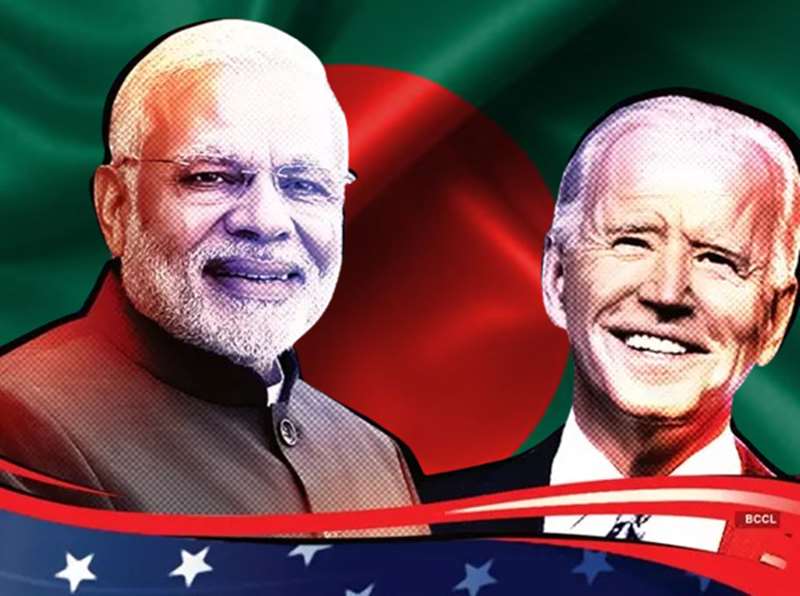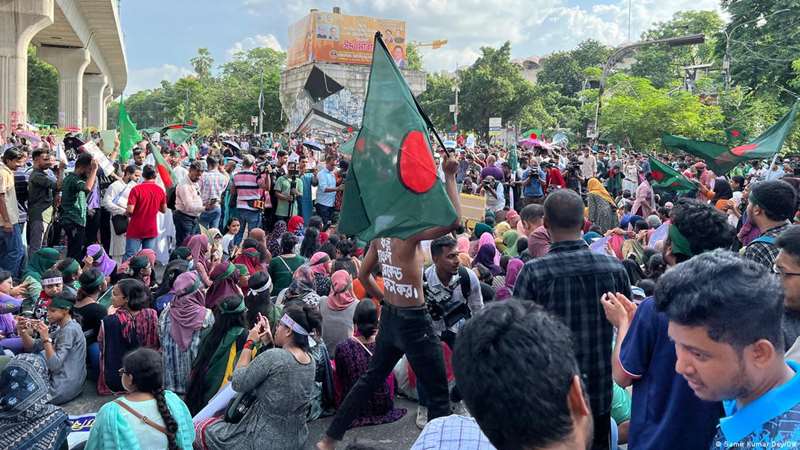India and US face the issue of Bangladesh

India and US face the issue of Bangladesh
"India and US Diverge in Approaches Towards Bangladesh's Political Landscape"
In recent years, discussions have centred on the United States viewing Bangladesh from India's perspective. However, former Bangladeshi Foreign Secretary Mohammad Tauhid Hossain notes a shift in the US stance, particularly during Russia's invasion of Ukraine and the ensuing global political realignments. This geopolitical shift, influenced by a rising China-Russia axis, is reshaping Western unipolar politics and impacting global economies.
The international community has raised concerns about human rights issues and the upcoming 12th National Assembly elections in Bangladesh. Notably, in December 2021, the US imposed visa bans on several former and current officers of Bangladesh's Rapid Action Battalion (RAB) for allegations of human rights violations.
In May 2023, the US introduced a new visa policy for Bangladesh, targeting individuals who undermine or assist in disrupting the democratic electoral process in the country. This policy encompasses a range of individuals, including government officials, political party members, law enforcement, and security forces.
Further tightening its stance, the US imposed visa restrictions on several Bangladeshi citizens in September 2023, although their identities remain undisclosed.
The 'two-plus-two' meeting in November between Indian and US foreign and defense ministers brought the Bangladesh elections into focus. India's Foreign Secretary Vinay Kwatra clarified to reporters that India views the elections as a domestic matter for Bangladesh, and its outcome should be decided by the Bangladeshi people.
Mohammad Tauhid Hossain observes that the US's growing interest in the Indo-Pacific region might not align with India's expectations. He believes the US aims to foster a significant relationship with Bangladesh, emphasizing the importance of fair elections.
Hossain highlights a diplomatic conundrum where the US's acceptance of India's stance on the Bangladeshi elections would inadvertently align with China's position, despite the existing US-China diplomatic ties. This situation underscores the complexity of balancing national interests and diplomatic relationships.
Discussing the India-Bangladesh relationship, retired Lt. Gen. Utpal Bhattacharya of the Indian Army, in a conversation with Deutsche Welle Bengal, addressed the Teesta river water dispute and border conflicts. He suggested these issues, while significant, are likely to find long-term resolutions and should not be overly politicized.
However, Hossain disagrees, pointing out India's reluctance to show goodwill, especially concerning the Bangladesh-India border issues and the prolonged Teesta river dispute. He criticizes the lack of progress and perceives India's approach as negatively impacting the bilateral relationship.
In his analysis, Hossain does not see the current global political shifts pushing Bangladesh towards any specific alliance. He believes that regardless of government changes in Bangladesh, it is unlikely to join the anti-China Quad alliance. However, he also thinks Bangladesh could improve its diplomatic handling of its relationship with the United States.









.jpg)
পাঠকের মন্তব্য